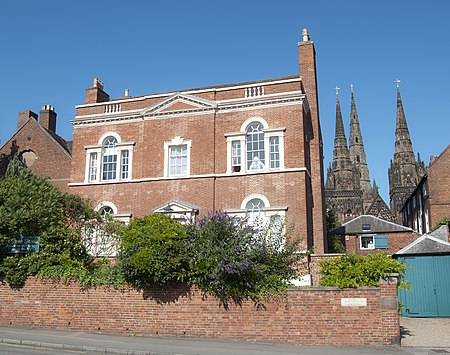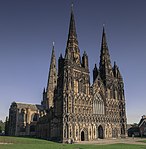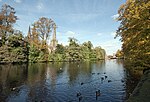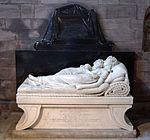Erasmus Darwin House
Biographical museums in StaffordshireBuildings and structures in LichfieldGrade I listed buildings in StaffordshireGrade I listed museum buildingsHistoric house museums in Staffordshire ... and 6 more
Houses in StaffordshireLiterary museums in EnglandMuseums in StaffordshireScience and technology in StaffordshireScience museums in EnglandUse British English from July 2013

Erasmus Darwin House in Lichfield, Staffordshire is the former home of the English poet and physician Erasmus Darwin, grandfather of naturalist Charles Darwin. The house is a Grade I listed building, and is now a writer's house museum commemorating Erasmus Darwin's life. Erasmus Darwin was a physician, scientist, inventor, poet, and educationalist, and lived on Beacon Street from 1758 until 1781. A founding member of the Lunar Society, it was here that he received many notable 18th-century personalities, including Josiah Wedgwood, Matthew Boulton, Benjamin Franklin and James Watt.
Excerpt from the Wikipedia article Erasmus Darwin House (License: CC BY-SA 3.0, Authors, Images).Erasmus Darwin House
Beacon Street, Lichfield Dimbles
Geographical coordinates (GPS) Address Nearby Places Show on map
Geographical coordinates (GPS)
| Latitude | Longitude |
|---|---|
| N 52.685347222222 ° | E -1.833125 ° |
Address
Angel Croft Hotel (disused)
Beacon Street
WS13 7AD Lichfield, Dimbles
England, United Kingdom
Open on Google Maps









